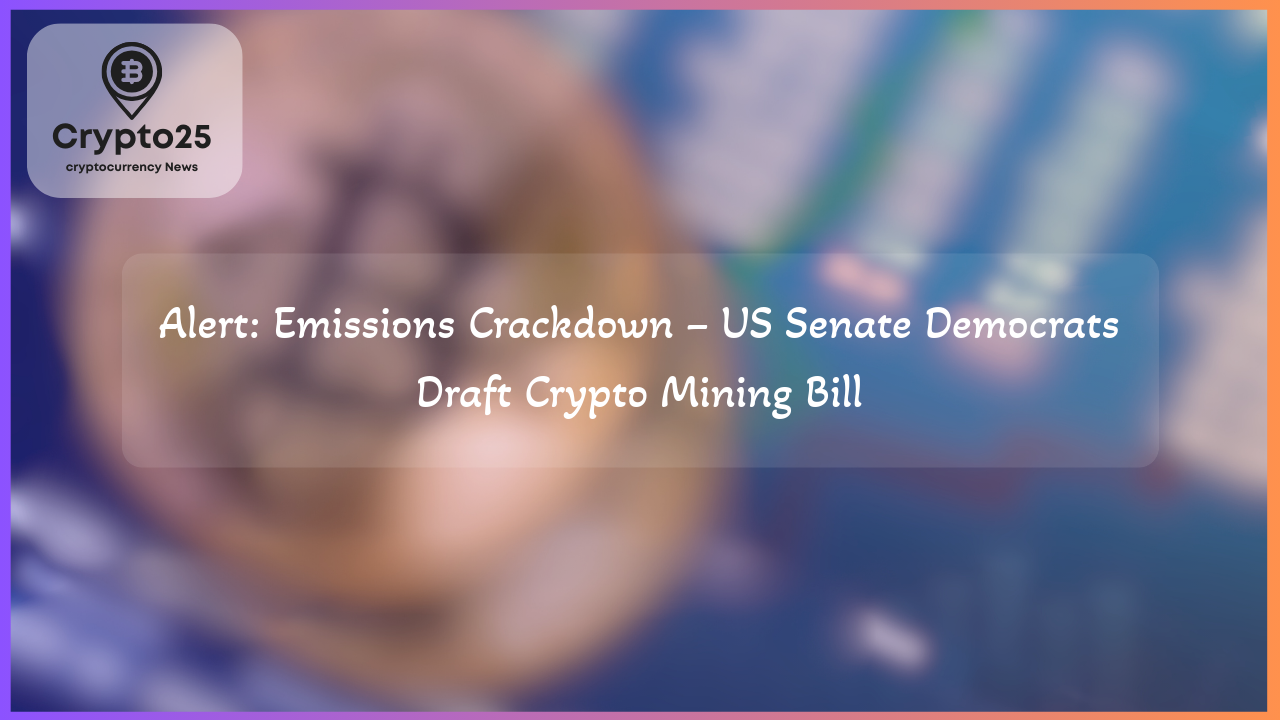
The energy demands of crypto mining and AI data centers have grown significantly, sparking a global debate about their environmental impact. Aiming to curb emissions and promote sustainable energy use, the U.S. Senate has introduced the Clean Cloud Act. This legislation outlines strict requirements and ambitious goals to transform how crypto mining and AI-related operations function, ensuring a greener future for technology.
### Clean Cloud Act Targets Crypto Mining Emissions
The Clean Cloud Act of 2025, spearheaded by Senators Sheldon Whitehouse and John Fetterman, sets out to curtail the rising environmental concerns associated with crypto mining. The legislation mandates annual energy-use reporting for facilities consuming over 100 kilowatts of power, requiring details on electricity sources, usage volumes, and emission intensity. With the spotlight on transparency, the bill seeks to hold crypto miners accountable for their energy choices, particularly those relying on non-renewable resources.
Crypto mining, especially Bitcoin, has faced mounting scrutiny due to its energy-intensive nature. According to the bill, facilities surpassing emission limits will face inflation-adjusted penalties. However, those fines will serve a greater purpose by funding grants to mitigate residential electricity costs, promoting fairness and sustainability. By 2035, the legislation targets a net-zero emissions status for the crypto and AI data sectors.
### Data Centers Driving US Energy Consumption
Current projections position U.S. data centers at the center of energy debates. A Congressional report estimates these facilities will account for 12% of the nation’s electricity use by 2028, highlighting the need for urgent action. Comparatively, data centers already consume 4% of U.S. electricity and make up approximately 1% of global demand. Bitcoin mining alone witnessed a staggering 739% network hash rate increase between 2020 and 2022, further stressing the sector’s growing energy appetite.
The Clean Cloud Act aims to address these serious energy concerns by enforcing annual emissions reductions. According to the Department of Energy’s National Transmission Needs Study, the caps for emissions would decrease by 11% annually, culminating in zero emissions within the next decade. Through this initiative, the Senate seeks not only environmental responsibility but also the creation of equitable energy policies across industries.
### Navigating Opposition and Crypto’s Future
Despite its ambitious sustainability goals, the Clean Cloud Act has ignited political discourse, particularly with Republican opposition. Former President Donald Trump previously advocated for all Bitcoin mining operations to remain within U.S. borders, citing economic benefits. Adding to the complexity, his sons are directly involved in the mining industry through ventures such as American Bitcoin Corp., launched in partnership with Hut 8 Corp.
While environmental proponents praise the Clean Cloud Act for tackling emissions, critics argue it may hinder innovation and investment in the crypto sector. Striking the right balance between environmental sustainability and technological advancement will be crucial for the bill’s success.
| Title | Details |
|---|---|
| Market Cap | $1.2 Trillion |
| Bitcoin Hash Rate Growth | 739% (2020-2022) |
| U.S. Data Center Share | 4% of total electricity usage |
The debate surrounding crypto mining and energy consumption underscores the industry’s global impact. As the U.S. strives to regulate carbon emissions, the Clean Cloud Act represents a landmark opportunity for crypto mining to align with renewable energy goals. The outcome will define not only how nations approach crypto regulation but also the path forward for sustainable innovation in blockchain and artificial intelligence.
